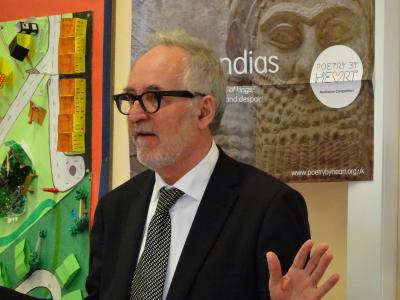Fight against Italian 'lettori' discrimination intensifies

ROME -- The ongoing campaign to address the "unacceptable discrimination" against lettori, UK and other non-Italian lecturers teaching in Italy, has recently been "intensified" by the British government, said David Lidington, minister for Europe at the UK Foreign and Commonwealth Office.
In the latest exchange of written questions and answers in the UK parliament on Wednesday Roger Mullin, Scottish National Party MP for Kirkcaldy and Cowdenbeath, asked the Secretary of State for Foreign and Commonwealth Affairs "what progress his Department has made on representations to the Italian government on guaranteeing that UK citizens working as teachers at universities in Italy who have had financial aspects of their contracts breached by their employers receive redress and equitable treatment."
The minister responded that "we made significant progress with Italian Ministers in moving towards a legislative solution that would end the inequitable terms and conditions whilst also addressing past discrimination. While this proposal has yet to be submitted to the Italian Parliament, we continue to engage Italian Ministers on this important issue."
"The most recent meeting took place between The Secretary of State for Foreign and Commonwealth Affairs, my right hon. Friend the Member for Runnymede and Weybridge (Mr Hammond) and Foreign Minister Gentiloni in November 2015."
The issue has been raised repeatedly over the years, and four successive statutory measures have been passed concerning the foreign lecturers. The first, in 1980, put all foreign lecturers on annual contracts rather than the open-ended contracts enjoyed by Italian counterparts, and another, in 1995, offered open-ended contracts to foreign workers but downgraded them to non-teaching staff. Both were successfully challenged in Italian courts as well as the European Court of Justice as illegally discriminating on the basis of nationality.
The ECJ found that a third Italian statute, law 63 of 2004, provided a framework to end the discrimination, thereby inviting the lecturers to seek compensation in the domestic courts, which they did en masse and at high financial cost to the state.
A controversial fourth law, the so-called Gelmini law, was consequently brought into force in 2011 that “extinguishes” their court cases.
David Petrie, chair of the Association of Foreign Lecturers in Italy, submitted a petition to the European Parliament arguing that the last sentence of Article 26 (3) of the Gelmini law, by providing for the closing of all pending cases before national courts, infringes the right to a fair trial and to an effective remedy.
In response to enquiries Italian authorities have maintained that the automatic termination of the terms of related disputes brought before national courts is a consequence of the fact that "the proceedings in question would appear pointless and should be closed in order to avoid unnecessary costs and ensure a sound administration of justice," according to submissions from the European Commission, lodged in the European Parliament’s Petitions Committee.
However, the European Commission concluded in September 2015 that "the interference brought about by the last sentence of Article 26 (3) of the Gelmini law may be regarded as incompatible with the standards enshrined in Article 47 of the [EU] Charter", and decided to continue pursuing the matter with the Italian authorities.
The discussions are ongoing.



